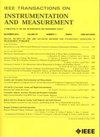YOLOv8-QSD: An Improved Small Object Detection Algorithm for Autonomous Vehicles Based on YOLOv8
IF 5.6
2区 工程技术
Q1 ENGINEERING, ELECTRICAL & ELECTRONIC
IEEE Transactions on Instrumentation and Measurement
Pub Date : 2024-03-18
DOI:10.1109/TIM.2024.3379090
引用次数: 0
Abstract
As self-driving vehicles become more prevalent, the speed and accuracy of detecting surrounding objects through onboard sensing technology have become increasingly important. The YOLOv8-QSD network is a novel anchor-free driving scene detection network that builds on YOLOv8 and ensures detection accuracy while maintaining efficiency. The network’s backbone employs structural reparameterization techniques to transform the diverse branch block (DBB)-based model. To accurately detect small objects, it integrates features of different scales and implements a bidirectional feature pyramid network (BiFPN)-based feature pyramid after the backbone. To address the challenge of long-range detection in driving scenarios, a query-based model with a new pipeline structure is introduced. The test results demonstrate that this algorithm outperforms YOLOv8 on the large-scale small object detection dataset (SODA-A) in terms of both speed and accuracy. With an accuracy rate of 64.5% and reduced computational requirements of 7.1 GFLOPs, it satisfies the speed, precision, and cost-effectiveness requirements for commercial vehicles in high-speed road driving scenarios.YOLOv8-QSD:基于 YOLOv8 的改进型自动驾驶汽车小目标检测算法
随着自动驾驶汽车的普及,通过车载传感技术检测周围物体的速度和准确性变得越来越重要。YOLOv8-QSD 网络是一种新型无锚驾驶场景检测网络,它以 YOLOv8 为基础,在确保检测精度的同时保持了效率。该网络的主干采用了结构重参数化技术,以转换基于多样化分支块(DBB)的模型。为了准确检测小型物体,它整合了不同尺度的特征,并在骨干网之后实现了基于双向特征金字塔网络(BiFPN)的特征金字塔。为了应对驾驶场景中远距离检测的挑战,该算法引入了一种具有新管道结构的基于查询的模型。测试结果表明,在大规模小目标检测数据集(SODA-A)上,该算法的速度和准确率均优于 YOLOv8。该算法的准确率为 64.5%,计算需求降低到 7.1 GFLOPs,满足了商用车在高速道路驾驶场景下对速度、精度和成本效益的要求。
本文章由计算机程序翻译,如有差异,请以英文原文为准。
求助全文
约1分钟内获得全文
求助全文
来源期刊

IEEE Transactions on Instrumentation and Measurement
工程技术-工程:电子与电气
CiteScore
9.00
自引率
23.20%
发文量
1294
审稿时长
3.9 months
期刊介绍:
Papers are sought that address innovative solutions to the development and use of electrical and electronic instruments and equipment to measure, monitor and/or record physical phenomena for the purpose of advancing measurement science, methods, functionality and applications. The scope of these papers may encompass: (1) theory, methodology, and practice of measurement; (2) design, development and evaluation of instrumentation and measurement systems and components used in generating, acquiring, conditioning and processing signals; (3) analysis, representation, display, and preservation of the information obtained from a set of measurements; and (4) scientific and technical support to establishment and maintenance of technical standards in the field of Instrumentation and Measurement.
 求助内容:
求助内容: 应助结果提醒方式:
应助结果提醒方式:


